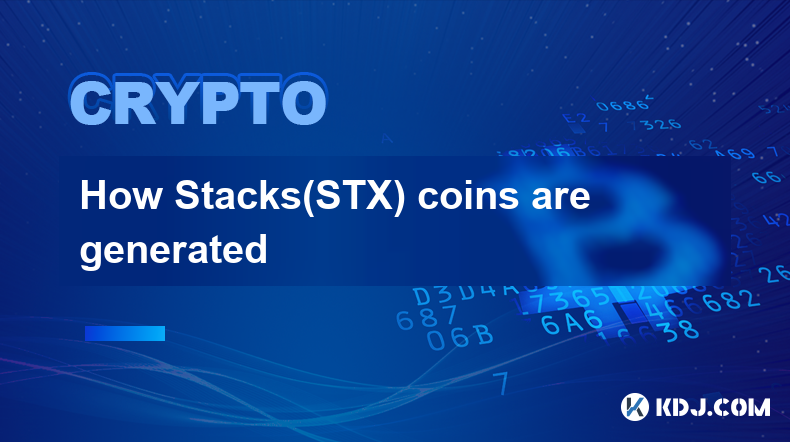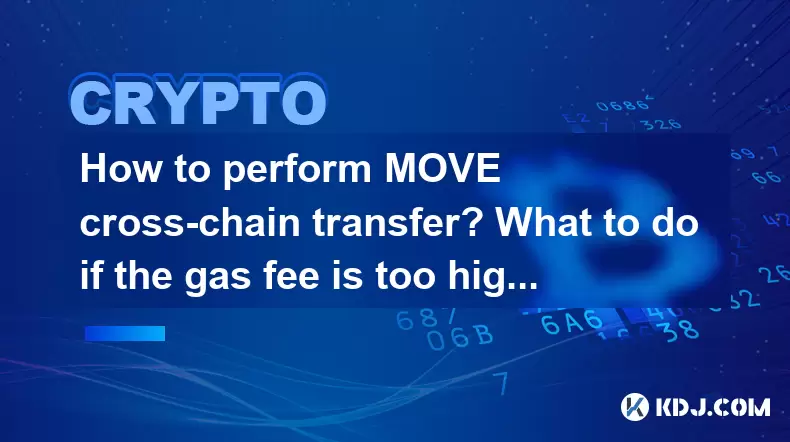-
 Bitcoin
Bitcoin $102,662.5363
4.85% -
 Ethereum
Ethereum $2,193.0670
19.81% -
 Tether USDt
Tether USDt $0.9999
-0.02% -
 XRP
XRP $2.3038
7.50% -
 BNB
BNB $625.3061
3.85% -
 Solana
Solana $162.5747
9.35% -
 USDC
USDC $1.0000
-0.02% -
 Dogecoin
Dogecoin $0.1948
11.09% -
 Cardano
Cardano $0.7630
11.78% -
 TRON
TRON $0.2574
3.22% -
 Sui
Sui $4.0011
17.05% -
 Chainlink
Chainlink $15.7755
11.92% -
 Avalanche
Avalanche $22.1531
11.42% -
 Stellar
Stellar $0.2965
12.70% -
 Shiba Inu
Shiba Inu $0.0...01431
10.58% -
 Bitcoin Cash
Bitcoin Cash $418.8427
3.36% -
 Hedera
Hedera $0.1947
9.85% -
 UNUS SED LEO
UNUS SED LEO $8.8625
0.49% -
 Toncoin
Toncoin $3.1835
5.09% -
 Hyperliquid
Hyperliquid $23.2143
10.04% -
 Litecoin
Litecoin $94.7248
4.08% -
 Polkadot
Polkadot $4.4824
10.46% -
 Monero
Monero $301.2717
6.79% -
 Dai
Dai $1.0001
-0.02% -
 Bitget Token
Bitget Token $4.4883
5.14% -
 Pi
Pi $0.6881
13.78% -
 Ethena USDe
Ethena USDe $1.0000
-0.06% -
 Pepe
Pepe $0.0...01096
30.81% -
 Uniswap
Uniswap $6.0905
23.37% -
 Bittensor
Bittensor $424.6065
12.59%
How Stacks(STX) coins are generated
Stacks (STX) coins are generated through a unique consensus mechanism called Proof-of-Transfer (PoX), which combines Proof-of-Work and delegated Proof-of-Stake to create a secure and efficient blockchain.
Dec 08, 2024 at 10:05 pm

How Stacks (STX) Coins Are Generated: A Comprehensive Guide
Stacks (STX) coins, the native cryptocurrency of the Stacks blockchain, are generated through a unique consensus mechanism known as the Proof-of-Transfer (PoX) protocol. This mechanism combines elements of Proof-of-Work (PoW) and delegated Proof-of-Stake (dPoS) to create a secure, efficient, and scalable blockchain.
The process of STX coin generation involves several key steps:
1. Stacks Mining
- Stacks mining is the process of creating new STX coins and adding them to the blockchain.
- Miners compete to solve complex cryptographic puzzles to create blocks of transactions.
- The first miner to successfully solve a puzzle receives a block reward in STX coins.
- Mining is a highly energy-intensive process that requires specialized hardware.
2. Proof-of-Transfer
- The PoX protocol requires miners to lock up a certain amount of STX coins as a stake.
- The amount of stake a miner has determines their voting power in the blockchain governance process.
- Miners can vote to approve or reject proposed changes to the blockchain protocol.
- Voting is rewarded with additional STX coins, further incentivizing miner participation.
3. Stacks Token (STX)
- STX is the native cryptocurrency of the Stacks blockchain.
- STX coins are used to pay transaction fees, secure the network through mining, and participate in governance.
- STX can be bought, sold, and traded on cryptocurrency exchanges.
4. Stacks Smart Contracts
- Stacks smart contracts are programs that run on the Stacks blockchain.
- Smart contracts can be used to create decentralized applications (dApps), automate tasks, and manage digital assets.
- Smart contracts are written in the Clarity programming language, which provides enhanced security and predictability.
5. Stacks Decentralized Finance (DeFi)
- Stacks DeFi applications allow users to borrow, lend, trade, and yield farm with STX coins and other cryptocurrencies.
- DeFi on Stacks offers higher security, lower transaction fees, and more innovative products compared to traditional centralized finance services.
6. Stacks Non-Fungible Tokens (NFTs)
- Stacks NFTs are digital representations of unique assets that can be bought, sold, and traded on the Stacks blockchain.
- NFTs on Stacks offer a secure and transparent way to represent ownership and provenance of digital and physical assets.
7. Stacks Bridges
- Stacks bridges connect the Stacks blockchain to other blockchains, such as Bitcoin and Ethereum.
- Bridges allow users to transfer assets and information between different blockchain networks.
- Bridges enhance the interoperability and utility of the Stacks ecosystem.
8. Stacks Development
- The Stacks blockchain is an open-source platform that is constantly being developed and upgraded.
- Developers are actively building new dApps, smart contracts, and tools to expand the functionality of the Stacks ecosystem.
- Stacks is committed to fostering innovation and supporting the growth of its developer community.
Disclaimer:info@kdj.com
The information provided is not trading advice. kdj.com does not assume any responsibility for any investments made based on the information provided in this article. Cryptocurrencies are highly volatile and it is highly recommended that you invest with caution after thorough research!
If you believe that the content used on this website infringes your copyright, please contact us immediately (info@kdj.com) and we will delete it promptly.
- Coinbase's Q1 2025 Earnings Report Disappoints Bullish Expectations in Several Key Areas
- 2025-05-09 09:05:13
- Obol Collective Launches the OBOL Token, Powering the Future of Decentralized Ethereum Staking
- 2025-05-09 09:05:13
- Sun Life Financial Inc. (TSX: SLF) (NYSE: SLF) Declares a Dividend of $0.88 Per Share
- 2025-05-09 09:00:12
- Sun Life Announces Intended Renewal of Normal Course Issuer Bid
- 2025-05-09 09:00:12
- Coinbase (COIN) Q1 CY2025 Highlights: Revenue Falls Short of Expectations, but Sales Rose 24.2% YoY to $2.03B
- 2025-05-09 08:55:12
- BlockDAG (BDAG) Clears Its Third Audit, Prepping for Launch
- 2025-05-09 08:55:12
Related knowledge

How to calculate Ethereum fee after EIP-1559? How to save?
May 09,2025 at 08:01am
The introduction of EIP-1559 in August 2021 brought significant changes to the Ethereum network's fee structure, revolutionizing how users interact with transaction costs. This article will delve into the specifics of how to calculate Ethereum fees post-EIP-1559 and offer strategies to save on these fees. Understanding EIP-1559 and its ComponentsEIP-155...

Is Ethereum smart contract call fee high? How to optimize costs?
May 08,2025 at 09:35am
Is Ethereum Smart Contract Call Fee High? How to Optimize Costs? The world of Ethereum smart contracts has revolutionized the way we think about decentralized applications and blockchain technology. However, one of the most frequently discussed topics within this realm is the cost associated with executing smart contract calls. In this article, we will ...

Is Ethereum Layer2 fee low? How to use it cheaper?
May 08,2025 at 03:56am
The question of whether Ethereum Layer 2 solutions offer lower fees and how to use them more economically is a topic of great interest within the cryptocurrency community. Ethereum's Layer 2 solutions have been developed to address the high transaction fees and scalability issues associated with the main Ethereum network. In this article, we will delve ...

How to calculate Ethereum network fee? How to reduce transaction costs?
May 08,2025 at 02:15am
Understanding and managing Ethereum network fees is crucial for anyone involved in transactions on the Ethereum blockchain. The network fee, also known as gas fee, is the amount of Ether (ETH) required to successfully conduct a transaction or execute a smart contract on the Ethereum network. Calculating these fees and finding ways to reduce them can sig...

What is Ethereum Gas Fee? How to optimize Gas Fee to save costs?
May 08,2025 at 03:43am
Ethereum gas fees are a crucial aspect of interacting with the Ethereum blockchain. Understanding and optimizing these fees can significantly impact the cost-effectiveness of transactions and smart contract interactions. In this article, we will delve into what Ethereum gas fees are, how they are calculated, and provide detailed strategies for optimizin...

How to perform MOVE cross-chain transfer? What to do if the gas fee is too high?
May 07,2025 at 08:03pm
Introduction to MOVE Cross-Chain TransferCross-chain transfers have become an essential part of the cryptocurrency ecosystem, allowing users to move assets between different blockchain networks. One of the popular protocols for achieving this is the MOVE cross-chain transfer. This article will guide you through the process of performing a MOVE cross-cha...

How to calculate Ethereum fee after EIP-1559? How to save?
May 09,2025 at 08:01am
The introduction of EIP-1559 in August 2021 brought significant changes to the Ethereum network's fee structure, revolutionizing how users interact with transaction costs. This article will delve into the specifics of how to calculate Ethereum fees post-EIP-1559 and offer strategies to save on these fees. Understanding EIP-1559 and its ComponentsEIP-155...

Is Ethereum smart contract call fee high? How to optimize costs?
May 08,2025 at 09:35am
Is Ethereum Smart Contract Call Fee High? How to Optimize Costs? The world of Ethereum smart contracts has revolutionized the way we think about decentralized applications and blockchain technology. However, one of the most frequently discussed topics within this realm is the cost associated with executing smart contract calls. In this article, we will ...

Is Ethereum Layer2 fee low? How to use it cheaper?
May 08,2025 at 03:56am
The question of whether Ethereum Layer 2 solutions offer lower fees and how to use them more economically is a topic of great interest within the cryptocurrency community. Ethereum's Layer 2 solutions have been developed to address the high transaction fees and scalability issues associated with the main Ethereum network. In this article, we will delve ...

How to calculate Ethereum network fee? How to reduce transaction costs?
May 08,2025 at 02:15am
Understanding and managing Ethereum network fees is crucial for anyone involved in transactions on the Ethereum blockchain. The network fee, also known as gas fee, is the amount of Ether (ETH) required to successfully conduct a transaction or execute a smart contract on the Ethereum network. Calculating these fees and finding ways to reduce them can sig...

What is Ethereum Gas Fee? How to optimize Gas Fee to save costs?
May 08,2025 at 03:43am
Ethereum gas fees are a crucial aspect of interacting with the Ethereum blockchain. Understanding and optimizing these fees can significantly impact the cost-effectiveness of transactions and smart contract interactions. In this article, we will delve into what Ethereum gas fees are, how they are calculated, and provide detailed strategies for optimizin...

How to perform MOVE cross-chain transfer? What to do if the gas fee is too high?
May 07,2025 at 08:03pm
Introduction to MOVE Cross-Chain TransferCross-chain transfers have become an essential part of the cryptocurrency ecosystem, allowing users to move assets between different blockchain networks. One of the popular protocols for achieving this is the MOVE cross-chain transfer. This article will guide you through the process of performing a MOVE cross-cha...
See all articles






















































































